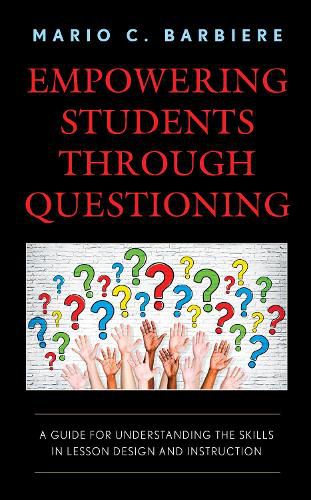Readings Newsletter
Become a Readings Member to make your shopping experience even easier.
Sign in or sign up for free!
You’re not far away from qualifying for FREE standard shipping within Australia
You’ve qualified for FREE standard shipping within Australia
The cart is loading…






Teachers ask 40 questions a day. Do the questions empower students, assess student knowledge of the subject matter, or promote student metacognition? Empowering Students Through Questioning: A Guide for Understanding the Skills in Lesson Design and Instruction addresses the art and skill of questioning so teachers can plan more effective lessons and achieve greater student engagement and cognition. Included are practice activities for teachers to use in planning questions for their lesson, as well as field tested rubrics to help coach and mentor teachers in understanding how their questions address student activity. The book also discusses common pitfalls of questioning, what type of test is best to use to assess student knowledge, activities for planning and assessing questioning, types of assessments to use, and the types of questions that are most effective for the specific assessment. The relationship between Revised Bloom’s Taxonomy (teacher input) and Webb’s Depth of Knowledge (student output) is also shown so teachers can see the impact of their questioning.
$9.00 standard shipping within Australia
FREE standard shipping within Australia for orders over $100.00
Express & International shipping calculated at checkout
Teachers ask 40 questions a day. Do the questions empower students, assess student knowledge of the subject matter, or promote student metacognition? Empowering Students Through Questioning: A Guide for Understanding the Skills in Lesson Design and Instruction addresses the art and skill of questioning so teachers can plan more effective lessons and achieve greater student engagement and cognition. Included are practice activities for teachers to use in planning questions for their lesson, as well as field tested rubrics to help coach and mentor teachers in understanding how their questions address student activity. The book also discusses common pitfalls of questioning, what type of test is best to use to assess student knowledge, activities for planning and assessing questioning, types of assessments to use, and the types of questions that are most effective for the specific assessment. The relationship between Revised Bloom’s Taxonomy (teacher input) and Webb’s Depth of Knowledge (student output) is also shown so teachers can see the impact of their questioning.